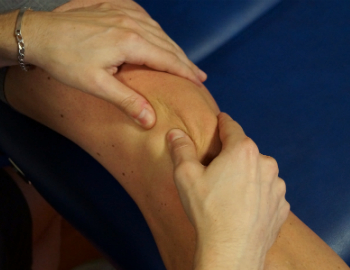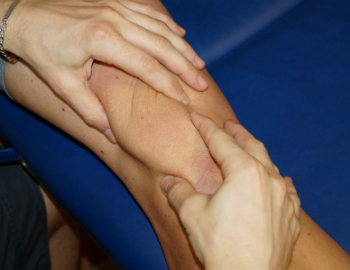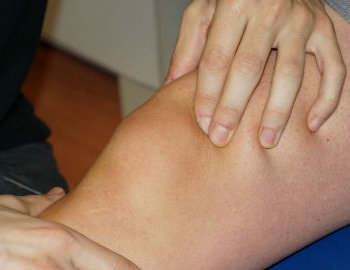Patellar mobilisations are soft tissue stretches around the kneecap that prevent adhesions from tethering it down and causing a stiff knee.
 Page updated February 2024 by Dr Sheila Strover (Clinical Editor)
Page updated February 2024 by Dr Sheila Strover (Clinical Editor)

The thumbs are used to tilt the patella from side to side.

Patellar glide to mobilise the parapatellar gutters and patellar retinaculum.

Mobilising the suprapatellar area.
Why perform patellar mobilisations?
The patella is central to all movement in the knee as the muscles causing bending and straightening cause it to glide up and down its underlying groove. If it is tethered down to adjacent structures by inflammatory adhesions, the knee will no longer be able to properly bend and straighten. When adhesions mature to proper scar tissue, the condition is known as arthrofibrosis which is very challenging to treat.
How do patellar mobilisations work?
Gently stretching all the tissues around the patella in the early stages after injury or surgery will break any sticky adhesions there. If they are not freed, they can go from being adhesions into scar tissue, and scar tissue contracts and the knee can become very stiff. Trying to exercise will then become very painful. The kneecap can gradually be pulled down into an abnormal position called patella baja.
Forum discussions
- What is Patella Mobes?
Mobes, Patellar Mobes, Patellar Mobilisations - this discussion will put it all into perspective.
How knee tissues scar and lock up the joint
This short animation explains how the tissues around the knee may scar and lead to a decreased range of motion.
 2014 -
2014 -  2007 -
2007 -